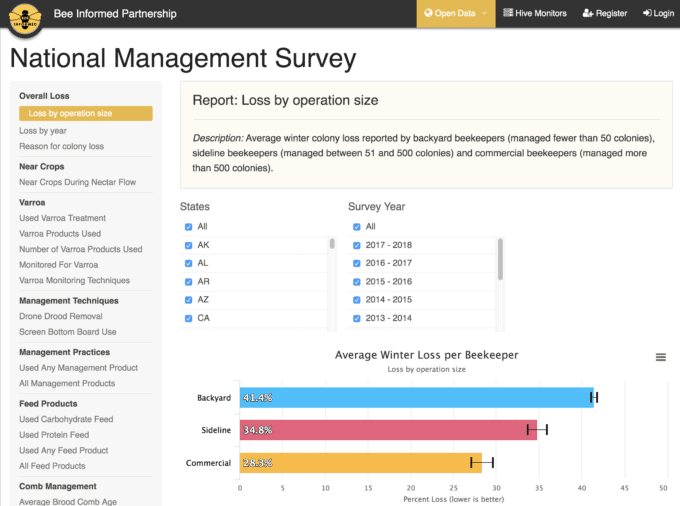Good morning America!
It’s beautiful outside! The birds are chirping and the bees are flying! You may even notice a few flowers outside too!
Here in the South, our many azaleas are in full bloom! This means Spring is upon us!

And of course, Spring means one thing: it’s time to take the Bee Informed Partnership’s annual Colony Loss and Management Survey!
It’s easy! One click and you are in, ready to take the survey and to serve our nation’s beekeeping industry:
The information that you provide will be invaluable to our understanding of honey bee health around the country.
As background, the BIP’s National Loss Survey was launched for the first time in 2006, and thanks to the many thousands of beekeepers who have participated since then, we have been able to document and better understand long-term honey bee colony loss trends. Check out the interactive state loss map as evidence!
In 2010, BIP’s National Management Survey was added to help us understand how management practices are potentially linked to colony survivorship. Thanks to your answers, we have been able to develop a dynamic management data tool.
Feel free to play around with the interface. Want to know how colony losses compared between beekeepers that DID or DID NOT use a varroa treatment? Or what about the average age of comb in American hives? It’s all in there!

The Bee Informed Partnership’s dynamic management, data explorer tool
If you would like to prepare yourself for our questions, or want to take some notes while you’re looking at your colonies, download the survey or have a look at the 2018 – 2019 National Colony Loss and Management Survey Preview.
This preview should serve as an aid to the questions that are asked on the survey. Please, do not mail this preview version back to us.
When you are ready: TAKE THE SURVEY NOW!
Many thanks to all previous participants, and to all you new-Bees for taking some time out of your busy schedule to fill out this year’s survey.
Your contribution is supporting research efforts at a national scale that are aimed to promote the health of our honey bees!